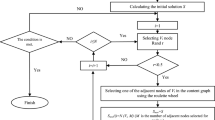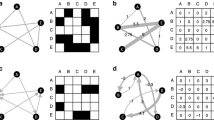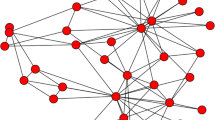Abstract
In this paper, we propose the multi-living agent (MLA) concept based on the of analysis the characteristics of complex information systems, especially those systems that require multi-functional operations under strict restraint strong countermeasures (SRSC) environment. First, we investigate the representation of the livelihood of the system under the SRSC conditions, and obtain the basic dynamical presentation of the MLA from the profile of the system’s function. Next, we propose the concept of the living self-organization based on the self-organization profile of the system, and derive a Two-Set model of the living self-organization mechanism. Further, based on the above results, we present a basic construction model of MLA-based information systems in the field of information security and countermeasures. A three-level negotiation-coordination mechanism is also derived. Finally, we present two practical examples to show how to use the MLA concept to analyze and study real complex information systems. In our opinion, the proposal of the MLA will bridge the gap between the research of the application and the basic application level of science. It provides the principle research methods and the supporting theories for the construction and analysis of complex information systems in the information security and countermeasures field.
Similar content being viewed by others
References
Prigogine I. Order Out of Chaos. New York: Bantam, 1984
Eigen M, Schuster P. The Hypercycle: A Principle of Natural Self-Organization. Heidelberg: Springer-Verlag, 1979
Haken H. Synergetics, an introduction. New York: Springer, 1977
Qian X S, Dai R W, Yu J Y. A new science field-open complex giant system and its methodology. Nature, 1990, 13(3): 3–10
Holland J H. Hidden Order: How Adaptation Builds Complexity. Reading: Addison-Wesley, 1995
Wang Y. A novel method of constructing complex information systemmulti-living-agent method. Chinese Eng Sci, 2006, 8(5): 30–34
Marsic I, Medl A, Flanagan J. Natural communication with information systems. In: Proceeding of the IEEE, 2000, 88(8): 1354–1366
Lenat D B, Feigenbaum E A. On the thresholds of knowledge. Artif Intell, 1991, 47(1): 185–230
Zhang J J, Patel V L, Johnson K A. Designing human-centered distributed information systems. IEEE Intell Syst, 2002, 17(5): 42–47
Rouset W B, Cody W J. On the Design of man-machine systems: principles, practices and prospects. Automatica, 1998, 24(2): 227–238
Jones P M., Chu R W, Mitchell C M. A methodology for humanmachine systems research: knowledge engineering, modeling, and simulation. IEEE Trans Syst Man Cybern, 1995, 25(7): 1025–1038
Jones P M, Jacobs J L. Cooperative problem solving in human-machine systems: theory, models and intelligent associate systems. IEEE Trans Syst Man Cybern-part C: Appl Rev, 2000, 30(4): 397–407
Hinchey M, Sterritt R, Rouff C. Swarms and swarm intelligence. Computer, 2007, 40(4): 110–113
Author information
Authors and Affiliations
Corresponding author
Additional information
Supported by the Ministerial Foundation of China (Grant No. A2220060039)
Rights and permissions
About this article
Cite this article
Wang, Y., Tao, R. & Li, B. Using the multi-living agent concept to investigate complex information systems. Sci. China Ser. F-Inf. Sci. 52, 1–17 (2009). https://doi.org/10.1007/s11432-008-0474-6
Received:
Accepted:
Published:
Issue Date:
DOI: https://doi.org/10.1007/s11432-008-0474-6




